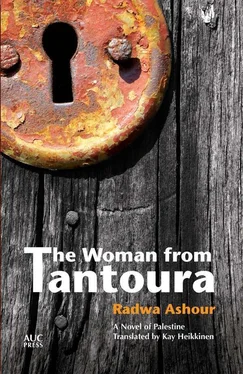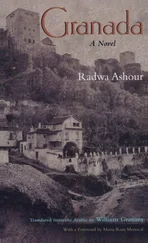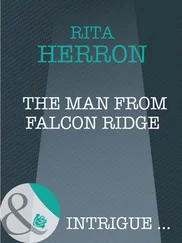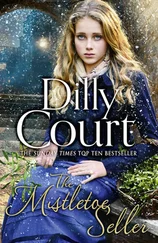“The Hijaz line connected Haifa to Daraa and Daraa to Damascus and Amman, arriving in Medina The Blessed in Arabia. People called it the Hamidiyeh Railway because Sultan Abd al-Hamid was the one who was enthusiastic about the project and ordered it started, and he was the first who contributed to creating it. In the Hijaz they called it ‘the sultan’s donkey.’”
I laughed, and repeated after him, “The sultan’s donkey!” He laughed, and continued, “The line was created from the contributions of the Muslims, Arabs, and Turks and Iranians and Indians, and it was considered an inalienable Islamic trust. The intention was for it to extend from Medina to Mecca and from there to Yemen. When the Turks left and the English came, the project stopped. The existing railroad in Palestine came under the control of the English occupying power, and they named it ‘Palestine Railways.’ It ended in Samakh, and after that the line was under the control of the French occupying power in Syria. The train stopped at al-Himma, and when it arrived in Daraa the line branched into a railway for trains headed to Damascus and a railway headed for Amman.
“Two years before the beginning of the First World War your grandfather traveled to the hajj pilgrimage by train. My mother bade him farewell at the door of the house, and my uncles, God have mercy on them all, accompanied him to Haifa. Your uncle Abu Amin was four, and he clung to my father and started to cry. My uncles took pity on him and decided to take him with them. I looked up at them. I didn’t cry, I didn’t say a thing, I just looked up. They said, ‘Come with us, boy.’
“We took a horse-drawn carriage to Haifa. We bade my father farewell at the Haifa East station, the station for the Hijaz line. I began to look everywhere, dazzled by what I saw — the station building, the gate, the monument that was higher than anything I had ever seen before, the train. It was colored; I remember that one of the cars in it was painted green … and another part was painted red, and even its black was shiny as if it were a color too. And whenever the train whistle sounded I started as if I were frightened, and then I would find myself laughing. I laughed aloud.
“My father bought us lukoum before he boarded the train. When he boarded I saw him through the window and we began to wave at him with our hands. Then the train started to move and I was moving my eyes between my father’s face behind the glass and the wheels that were turning slowly, then faster. That day was the most joyful day of my life. It’s etched into my memory in its smallest detail, even the pliable feel of the lukoum between my fingers and the taste of the almonds and the powdered sugar in my mouth, I remember it. On the way back your uncle slept, he was deeply asleep, sitting next to two of my uncles in the back seat of the carriage, but my uncle who was driving the carriage let me sit next to him in the front, so I saw the whole horse and I could almost touch his tail, if I leaned forward a little. But my uncle had his arm around my waist so I wouldn’t be hurt by any sudden movement of the carriage or the horse. It was the end of autumn; the sky was a little cloudy, maybe it had rained during the previous days. The trees were dense and colorful, green and red and brown, and the earth was also colored, red sometimes and sometimes black, and sometimes the color of coffee before it’s roasted. The hills extended on our left, cloudy and milky, in waves as if they weren’t hills. The clouds above them were amazing, at times looking like white lambs with thick wool and at times like a sea of shells. I even liked the sting of the cold that day. I was sitting next to my uncle, turning my eyes from the sky to the earth, from the horse to the hills, from the tree that we were passing to the tree we were approaching. The road seemed calm like a dream, disrupted only by the neighing of the horse or the sound of his hooves on the road.”
He suddenly stopped. He said, “Good night, Ruqayya. Tomorrow is another day.”
It seems I didn’t sleep long as I awoke before my mother and found my father sitting next to the radio. I said good morning. He looked up at me and said, “Your uncle is an ass, Ruqayya!” The expression surprised me, threw me into confusion even. I didn’t understand until two or three days later, when it seemed clear that there was good news from the battles raging in many places. I took my father’s words as a comment on my uncle’s decision to leave, which now seemed uncalled for. The Syrians had taken possession of Samakh and the Jews had pulled out after suffering heavy losses. The two neighboring colonies had fallen. It was said that the Egyptian army was moving toward Tel Aviv, and that the Iraqi forces were launching fierce attacks on a large colony named Gesher, with armored cars and airplanes. The Atarot colony on the Jerusalem — Ramallah road fell, and the guerrilla fighters succeeded in turning back the attempted invasion of the old city of Jerusalem.
On the night of Wednesday to Thursday I dreamed that I was visiting Medina The Blessed. When I told the dream to my mother, as she was absorbed in her usual Thursday bread baking, her face lit up and she assured me that it was a vision and not a dream. “The bastards will be defeated and the whole country will become like blessed Medina!”
7
When They Occupied the Village
I didn’t hear the noises; I was sleeping. When my mother woke me up, I heard them and asked her about them. She said, “Wake up Wisal and Abed. Put out fodder for the livestock that will last two or three weeks, and a lot of water. Scatter seed for the chickens, a lot. And the horse, don’t forget the horse. Lift the oil cans off the ground so the moisture doesn’t get to them, and put a cushion between the wall and each can. Dress in three layers, and Wisal also, and the boy.” I asked, “Where are my father and brothers?” She did not answer the question. She was absorbed in gathering things in a hurry. Wisal’s mother was doing the same. Then we found ourselves standing in front of the house, and I asked again. She said that they were on guard duty and would catch up with us when things became clear. I asked her what she meant by “when things became clear,” but she didn’t answer. It was strange — my mother who wailed in anxiety over her boys in Haifa seemed like another woman, giving orders, managing the affairs of her small flock with resolution and speed, even though I didn’t understand the logic of this management. She gave me a four-liter measure of white cheese to carry and took a can of oil, and Wisal’s mother took a can of olives. I did not understand, so I asked, “All this cheese and all this oil and olives, what will we do with them?” She did not answer.
We left the house. My mother closed the gate and locked it with the large key. It was strange for me, as I had never seen the door of our house locked ever, nor had I seen the key; it was of iron, large, and my mother turned it in the lock seven times. She put it in her bosom. Suddenly my mother noticed that I was carrying the little goat kid whose mother had died, and she asked, “Why are you carrying that goat?” I said, “I’ll take her with me.” She did not comment. She announced, “We’ll go to the house of my uncle, Abu Jamil.” We walked toward his house, my mother and Wisal’s ahead of us, each carrying a can in one hand and a bundle in the other, with me, Wisal, and Abed behind them. Wisal was holding her brother’s hand in one of hers and in the other carried a square iron box with the papers they had brought with them from Qisarya; I was carrying the goat in one hand and the cheese container in the other. We arrived at Abu Jamil’s house. The sound of explosions and the rattle of bullets came to us from the east in the direction of the school, from the direction of the tower in the north, and from the direction of the jail in the south. Umm Jamil insisted that we eat breakfast; she repeated that it would be a long day and that we didn’t know what would happen. She gave each of us a flat round loaf and said “Eat!” None of us said that we weren’t hungry or that it was the middle of the night and not time for breakfast or lunch; rather we ate, complying with her order, which was firm and decisive. The shelling increased. Abu Jamil said that it was coming from the west. “It seems that they are striking from the sea also.” He made his ablutions and began to pray. We heard the cocks crowing, then the dawn chirping of the birds; then we heard footsteps and three armed men burst into the house and drove us to the headman’s house. They were threatening us with their rifle butts and firing over our heads. On the way we saw the blind Hasan Abd al-Al and his wife Azza al-Hajj al-Hindi lying near their house surrounded by a pool of blood, then we saw the body of another person I didn’t know. Abed began to cry aloud. I let go of the goat and picked him up; he wrapped his legs around my waist and put his arms around my neck. I couldn’t see his face to know if he was still crying. The goat kept walking behind me.
Читать дальше












